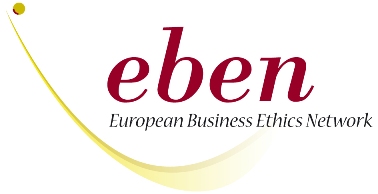European values and the essence of CSR
The notion of Corporate Social Responsibility (CSR) has spread out in the last decades. It started from the idea of responsibilities of business towards all stakeholders and not only towards the sole shareholders. The theme has been launched in North-America by Howard Bowen‘s book in 1953, and the term and concept have gradually been disseminated around the world. It has been taken up by academics for new research on the role of business in society, besides the pure economic role of corporations. Also, the European commission took the concept over in 2001 with a special plan for the promotion of CSR.
However, the principles of CSR are not new for Europe. Indeed, most European countries have integrated social issues much earlier in their policies, and social rights have also been adopted in the law and regulation. This reflects the European values of business, with a longer tradition of mixed economy and welfare state.
The present attention for CSR has been directed on communication with emphasis on formalization, reporting, etc. This is also expressed in the interest of academics for this topic. However, this is not the essence. The essence of CSR is not about reporting nor communication, the essence is about doing, it is about the practical implementation in the daily life of the company. It is not because a company has a nice CSR or sustainability report that this is effectively put into practice. And it is not because a company does not report nor communicate and has no CSR report that it does not have a social approach.
This is especially the case for the numerous small and medium-sized companies, that constitute the majority of companies in Europe. They do not need to report, what is important is what they really do for their employees, how they treat their customers and other stakeholders, as well as the neighborhood; in an ethical way, with respect and fairness.
CSR and especially CSR reporting is often too much directed towards compliance, towards the letter of the law and not the spirit the law, this also in the tradition of European values. We do not need additional regulation on CSR. You cannot regulate attitudes, nor a mentality nor a culture of an organization. Therefore, sensibilization is important. What is important in CSR is the attitude, a mentality, not formalism. It is about the enterprise culture, an enterprise culture based on values, values that the company should emanate to the external local community.
CSR is about long term; it therefore also encompasses sustainability, and environmental issues. There is a need for congruence between discourse and practice of CSR. If there is only formal compliance in CSR, but not transferred into practice, you end up in a situation of hypocrisy. And unfortunately, this is a situation that still exists in some large concerns; under a discourse of CSR shareholder value sometimes seems the only driving value and evaluation, with the tyranny of the stock market and its short termism.
CSR should not be instrumental, but to be successful it should start from a genuine approach that people are important: the employees, the customers and all stakeholders who are participating to the success of the company. A genuine approach to CSR and coherence between discourse and action will result in reputation; in fact, the best criterion for CSR, and one of the strongest assets of a company.
CSR and ethics are about fair treatment of all stakeholders and respect for the environment. This also implies a stakeholder approach to management, with value creation for all stakeholders. CSR is about values, and European values in a humanistic and social tradition in search of the common good.
Yves Fassin is professor for economics and business administration at Ghent University (Belgium)

